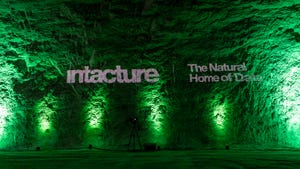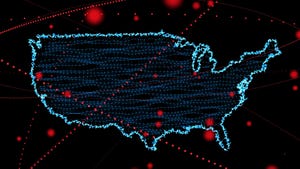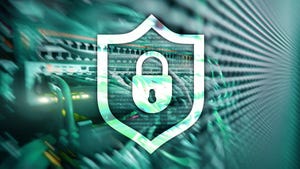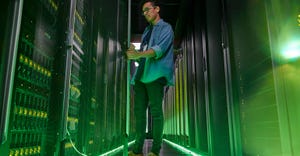Equinix Gets a Board Seat at the Open Source Edge Computing Foundation LF Edge
The top-tier membership gives it influence on the foundation's direction, including a say in which new projects get accepted.
February 18, 2020

Less than one month after announcing that it would be buying one of the leading startups in edge computing infrastructure, Equinix, the world's largest data center provider, has taken a step to expand its sphere of influence in the development edge computing architecture.
The company said last week that it had joined the open source LF Edge foundation. As a top-tier Premier member, it gets a seat on the foundation's governing board, which will be held by Equinix CTO Justin Dustzadeh. This will give the colocation and interconnection giant influence on the foundation's direction, including a say in which new projects get accepted.
In January, Equinix announced it was buying Packet, a bare metal cloud startup that in the last couple of years has been expanding in the "edge cloud" arena. Its edge cloud now has 10 locations in North America, two in Europe, and two in Asia Pacific.
LF Edge is a one-year-old umbrella organization within the Linux Foundation that's working to build an open framework for edge computing "independent of hardware, silicon, cloud, or operating system." It's currently home to seven projects, including Akraino Edge Stack, a software stack for cloud services optimized for edge-based servers and applications; EdgeX Foundry, a framework for plug-and-play microservices; Home Edge, a platform for "connected home" devices; and Project EVE, an edge virtualization engine.
Through its membership, Equinix hopes "to help customers and the community to develop open, cloud-neutral frameworks for edge computing, including its ever-increasing use cases and diverse set of requirements across the technology stack," Dustzadeh told Data Center Knowledge in an email. "We also look forward to sharing our experience and learnings with the community, given our unique position as the global data center and interconnection platform for networks, clouds, and enterprises."
Equinix is joining 32 other companies with top-level LF Edge membership. They are mostly telcos, but some are mobile and IoT device manufacturers and hybrid cloud software vendors. Companies in the latter category increasingly see edge data centers as part of the hybrid/multi-cloud landscape.
The membership will set Equinix back $50,000 annually, in addition to the $20,000 per year it already pays for a Linux Foundation Silver membership, a prerequisite for LF Edge membership.
The Packet acquisition, expected to be finalized in the next few months, gives the company access to small data centers located either directly below or in close proximity to cell towers, along with the expertise to quickly build new locations when necessary. Also important to Equinix is Packet's software platform that automates provisioning and management of physical, "bare-metal" hardware resources in data centers remotely.
"We see that businesses continue to move computing from centralized data centers to a distributed infrastructure and toward the edge, where data exchange and interconnection between businesses and cloud services are growing at an exponential rate," Dustzadeh said. "We also see that businesses across many industries are embracing edge computing, leveraging a hybrid multicloud architecture."
Equinix, with more than 200 data centers serving more than 50 markets on five continents, has a customer base that includes large hyperscale cloud providers as well as Fortune 500 and Global 2000 companies, and it wants to be the service provider that gives them an easy on-ramp to the edge, when they're ready to make the move.
"With a combined Equinix-and-Packet solution, enterprises and service providers will be able to build and deploy low-latency services at the edge through their choice of owned physical deployments in colocation, or by utilizing bare metal, which leverages as-a-service consumption, and which can reduce CapEx and resource requirements," said the CTO.
"The LF Edge premier membership will help us to collaborate more closely with industry leaders and the software-developer community, within the same umbrella organization, on an open, interoperable framework for edge and real-world use cases that we believe our customers can benefit from."
The Packet deal gave also gave Equinix a powerful position in another organization that's driving the development of edge computing infrastructure, but at a lower, more physical layer than the layers LF Edge is concerned with. Packet CEO and co-founder Zachary Smith was recently named chair of the board of the Open19 Foundation, replacing its founding chair, Yuval Bachar, who formerly led all things data center and hardware engineering at LinkedIn.
Open19 oversees development of a standard for data center hardware LinkedIn engineers designed to radically accelerate deployment in the field. Packet has been one of the few major adopters of the standard besides LinkedIn.
Read more about:
EquinixAbout the Author
You May Also Like
.jpg?width=300&auto=webp&quality=80&disable=upscale)



.jpg?width=300&auto=webp&quality=80&disable=upscale)


